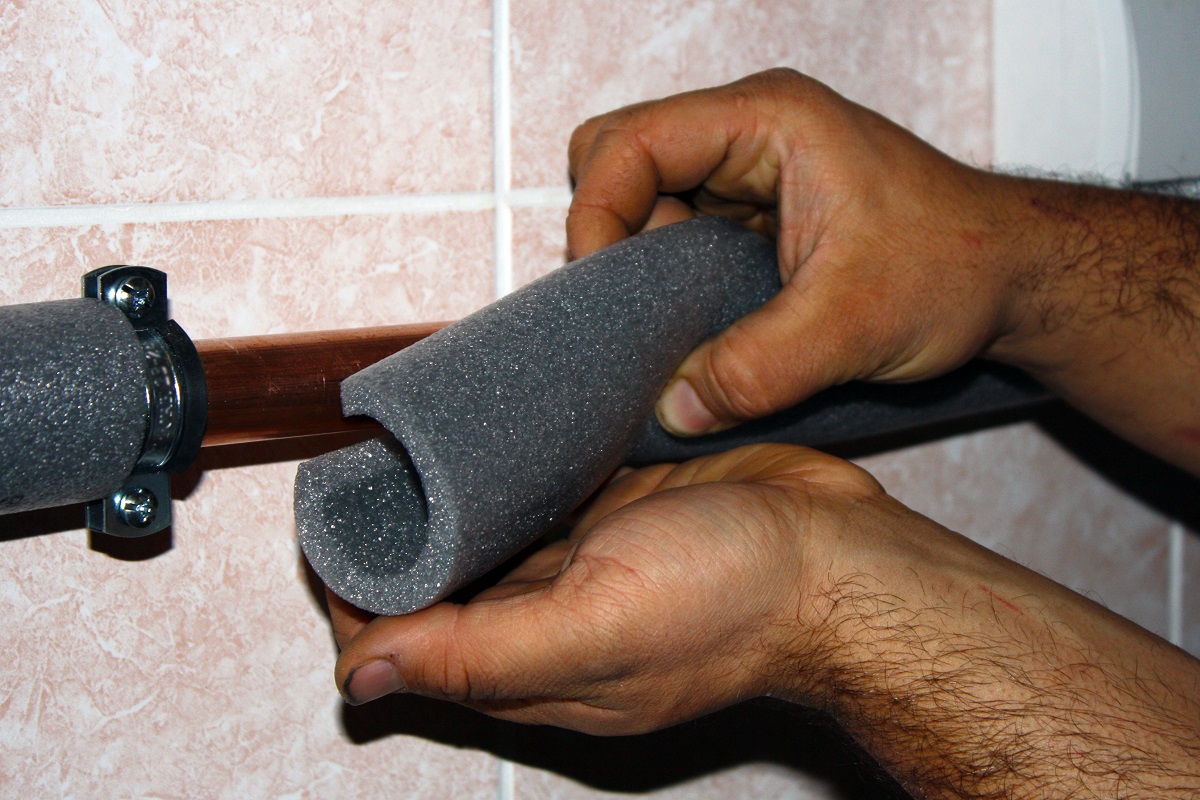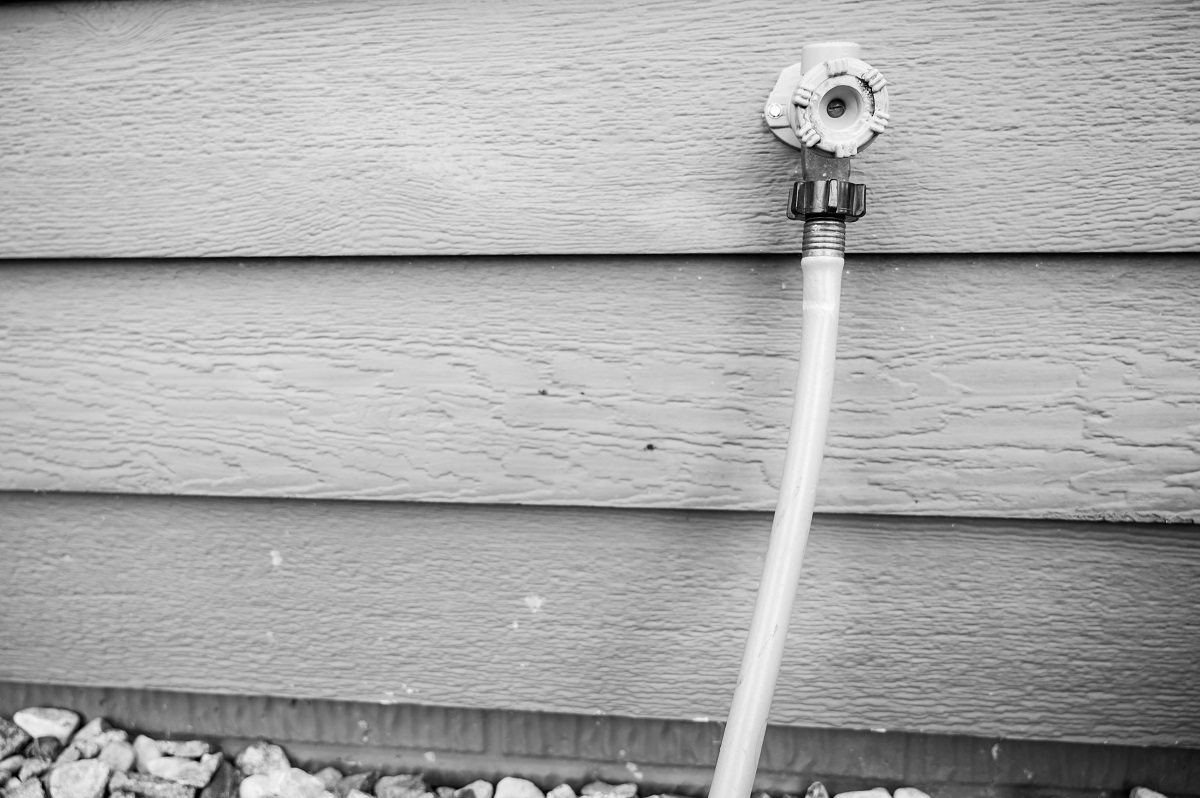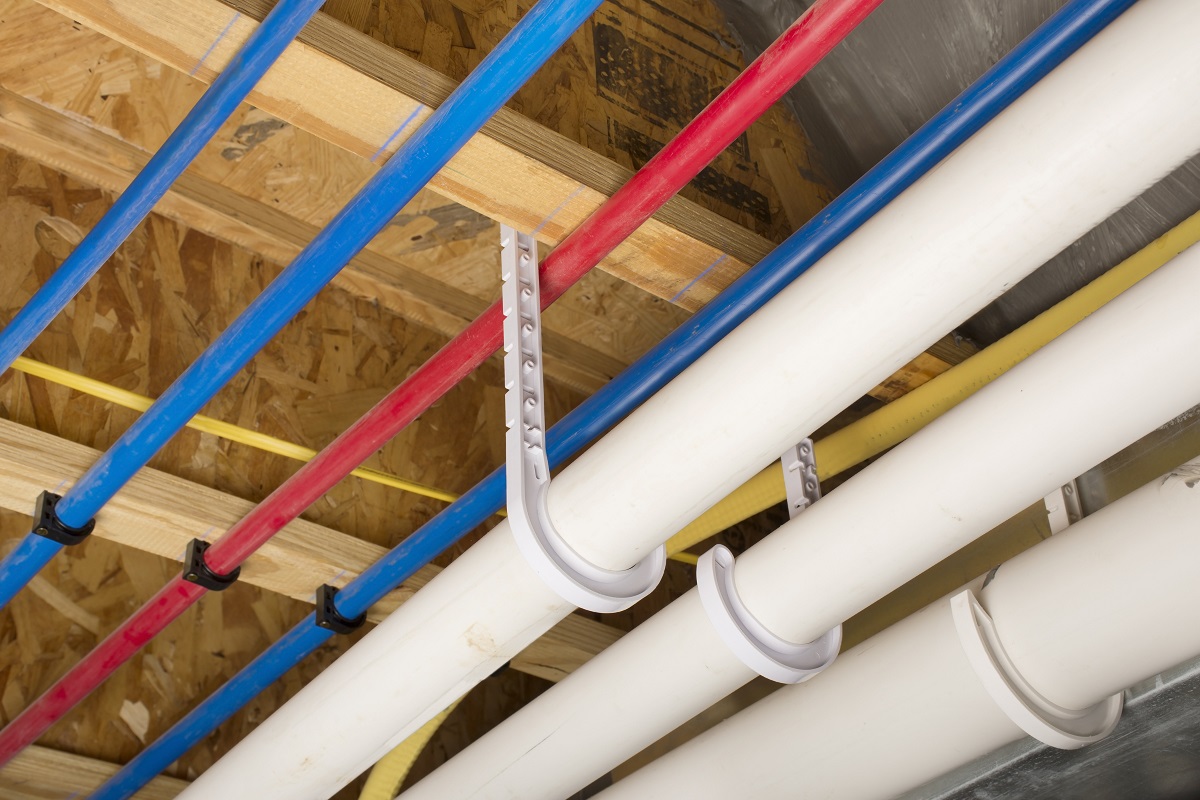It’s burst-pipe season! Prevent this costly insurance claim from happening in your home with these six simple tips!
Did you know that one in five homeowners insurance claims is for water damage and freezing? Unfortunately, every time temperatures dip below freezing, your pipes can become interior popsicles, burst, and create expensive damage in your home (approximately $11,000 per claim).
Rather than having to deal with the hassle, clean up, and possibly mold, prevent a water damage claim from a burst pipe by performing routine home maintenance and important home improvement projects. Read below to find out how to save time and money and gain peace of mind this winter in five quick ways (and one essential upgrade)!
#1 – Insulate or apply heat tape to problem pipes

Jack Frost comes quick and fast, and Northeast and Mid-Atlantic homeowners have already seen temperatures dip below freezing. One of the easiest ways to prevent freezing pipes is to identify exposed piping that may be vulnerable to cold weather, and call a plumber or your home service professional to apply heat tape or insulation. Heat tape can prevent your pipes from freezing in degrees as low as -60°F, but insulation can also help to provide protection.
Of course, you should routinely check pipes running along exterior walls. If water is not flowing through faucets and fixtures as you would expect, or you are concerned pipes in your home may have been exposed to freezing temperatures, open any cabinet doors and get warm air into the area.
#2 – Let your cold water drip
Some homeowners also leave their cold water dripping at night to keep the water flowing, but this can create additional issues if your drain isn’t clear. It will, of course, reflect on your water bill if you have municipal water service. However, a slight increase in your water bill is cheaper than thousands of dollars in water damage and time out of your home.
#3 – Drain your exterior pipes

Before the seriously cold temperatures arrive, disconnect any garden hoses and bring them inside for the winter. Also, shut off the water leading to your spigots, and if possible, drain the pipes. This way, ice can’t form in the pipes, burst, and send water spilling into your home.
#4 – Steady your thermostat

While you can lower your monthly heating bill by keeping your interior temperatures low when you’re away from home or sleeping, keeping a steady temperature can prevent fluctuations and deterioration to your pipes. While freezing is below 32°F, you want to keep your thermostat above 55°F to prevent issues – even when you are out of town. (For comfort and to ward off cold toes, you definitely should keep it higher!) Also, make sure your thermostat’s battery is working and replace it frequently to prevent your heat from turning off.
#5 – Gain peace of mind with smart solutions
Smart water devices can help to prevent frozen pipes in winter or mitigate the damage from a burst pipe. There are two distinctive types of home water sensors. One type features “pucks” that are placed around your home in areas where a leak might occur, while the second type uses a device that connects to the home’s water main and monitors the flow. If the sensors detect water or the flow changes in the pipes, homeowners will receive an alert on their phones.
Technically, only the second type – the water monitor – can help reduce damage from a freezing pipe as it would notice an issue with water flow; however, both types are important, especially if you have an automatic water shut-off valve. This device takes detection to the next level by automatically shutting off the water coming into your home within two minutes of detecting a leak. While this can prevent further damage, a lot of water can spill from a pipe into your home within those two minutes.
Additional home tip: If you’re installing smart water devices, consider adding other smart home devices to your home, such as a video doorbell or motion sensors. These can help to prevent another type of common home insurance claims – theft.
#6 – Upgrade your out-of-date pipes

Frozen pipes are generally caused by the perfect storm of older homes and cold temperatures. Over time, piping material can wear out, and temperature fluctuations can speed up the deterioration.
If your home is older or you haven’t completed updates recently, talk to a plumber about PEX or cross-linked polyethylene pipes. These are blue and red piping (for hot and cold water) that are cheaper than copper, easier to install, and more flexible. They’re also less likely to burst.
As upgrading your pipes can be expensive, especially for a whole house, make a note of the areas that you routinely have to thaw and see if your plumber can just replace those pipes.
Homeowner Insurance for The Way You Live
At Franklin Mutual Insurance, we recognize your home is more than an investment and a place to live. It’s a safe haven where friends and family gather, memories are made, and your most valued possessions reside. Give your home and loved ones the protection they deserve with extensive property and liability coverage that can be customized to meet your needs and budget.
Learn more about our homeowners insurance policies now.
FMI content is powered by vipHomeLink